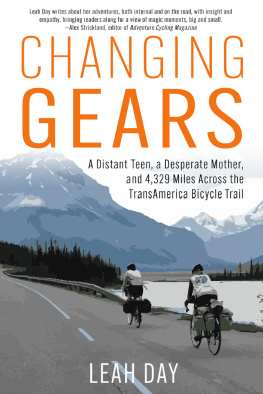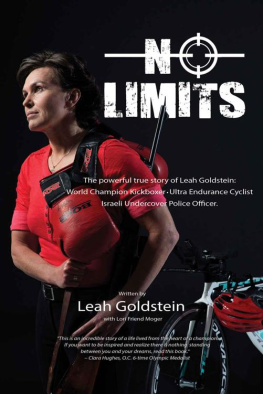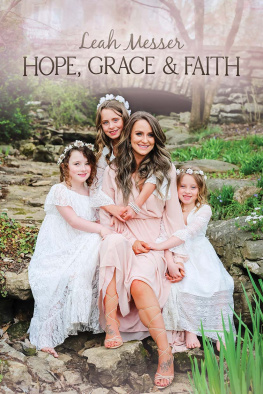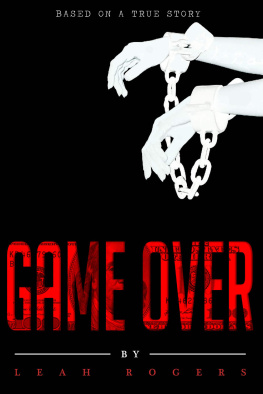Megan Miranda
THE PERFECT STRANGER
2017
The cat under the front porch was at it again. Scratching at the slab of wood that echoed through the hardwood floors of my bedroom. Sharpening its claws, marking its territory relentless in the dead of night.
I sat on the edge of the bed, stomped my feet on the wood, thought, Please let me sleep, which had become my repeated plea to all things living and nonliving out here, whatever piece of nature was at work each particular night.
The scratching stopped, and I eased back under the sheets.
Other sounds, more familiar now: the creak of the old mattress, crickets, a howl as the wind funneled through the valley. All of it orienting me to my new life the bed I slept in, the valley I lived in, a whisper in the night: You are here.
I had been raised and built for city life, had grown accustomed to the sound of people on the street below, the car horns, the train running on the track until midnight. Had come to expect footsteps overhead, doors slamming shut, water in the pipes running through my walls. I could sleep through all of it.
The silence in this house, at times, was unsettling. But it was better than the animals.
Emmy, I could get used to. She slipped right in, the sputtering engine of her car in the driveway a comfort, her footsteps in the hallway lulling me to sleep. But the cat, the crickets, the owls, and the coyote these took time.
Four months, and it was finally shifting, like the season.
WE HAD ARRIVED IN the summer Emmy first; me, a few weeks later. We slept with our doors closed and the air turned on high, directly across the hall from each other. Back in July, when I first heard the cry in the middle of the night, I bolted upright in bed and thought, Emmy.
It was a muffled, low moan, like something was dying, and my mind was already filling in the blanks: Emmy struggling, grasping at her throat, or keeled over on the dusty floor. Id raced across the hall and had my hand on her doorknob (locked) when shed torn it open, staring back at me with wide eyes. She looked for a moment like she had when wed first met, both of us barely out of school. But that was just the dark playing tricks on me.
Did you hear that? shed whispered.
I thought it was you.
Her fingers circled my wrist, and the moonlight from the uncovered windows illuminated the whites of her eyes.
What was it? I asked. Emmy had lived in the wild, had spent years in the Peace Corps, had grown accustomed to the unfamiliar.
Another cry, and Emmy jumped the sound had been directly below us. I dont know.
She was roughly my size but skinnier. Eight years earlier, it had been the other way around, but shed lost the curves and give in the years since shed been gone. I felt I needed to be the one to protect her now. To shield her from the danger, because there was nothing to Emmy these days but sharp angles and pale skin.
But she moved first, noiselessly walking down the hall, her heels barely making contact with the floor. I followed, keeping my steps light, my breathing shallow.
I put my hand on the phone, which was corded and hooked to the kitchen wall, just in case. But Emmy had other plans. She grabbed a flashlight from the kitchen drawer, slid the front doors slowly open, and stepped out onto the wooden porch. The moonlight softened her, the breeze moving her dark hair. She arced the light across the tree line and started down the steps.
Emmy, wait, Id said, but shed eased herself onto her stomach in the dirt, ignoring me. She shone the light under the porch, and something cried again. I gripped the wooden railing as Emmy rolled onto her back, faintly shaking with laughter before it made its way from her gut, tearing through the night sky.
A hiss, a streak of fur darting from under the house straight into the woods, and another following behind. Emmy pushed herself to sitting, her shoulders still shaking.
Were living on top of a cat brothel, shed said.
The smile caught on my lips, a stark relief. No wonder the price was so good, Id said.
Her laughter slowly died, something else pulling her focus. Oh, look, shed said, a skinny arm pointing to the sky behind me.
A full moon. No, a supermoon. Thats what it was called. Yellow and too close, like it could affect the pull of gravity. Make us go mad. Make cats go crazy.
We can put up cinder blocks, Id said, to keep out the animals.
Right, shed said.
But, of course, we never did.
EMMY LIKED THE IDEA of the cats. Emmy liked the idea of old wood cabins and a porch with rockers; also: vodka, throwing darts at maps while drinking vodka, fate.
She was big on that last one.
Its why she was so sure moving here together was the right thing to do, no second thoughts or second guesses. Fate leading us back together, our paths intersecting in a poorly lit barroom eight years since the last time wed seen each other. Its a sign, shed said, and since Id been drunk it made perfect sense, my thoughts slurring together with hers, wires crossing.
The cats were probably a sign, too of what, I wasnt sure. But also: the supermoon, the fireflies flashing in time to her laughter, the air thick with humidity, as if it were engulfing us.
Any time wed hear a noise after that, any time Id jolt alert from the worn brown sofa or from my seat at the vinyl kitchen table, Emmy would shrug and say, Just the cats, Leah.
But for weeks, I dreamed of bigger things living underneath us. Took the steps in one big leap when I left each day, like a kid. Pictured things coiled up or crouched down in the dark, in the dirt, nothing but yellow eyes staring back. Snakes. Raccoons. Stray and rabid dogs.
Just yesterday one of the other teachers said there was a bear in his yard. Just that: a bear in his yard. Like it was a thing one might or might not notice in passing. Graffiti on the overpass, a burnt-out streetlight. Just a bear.
Dont like bears, Ms. Stevens? hed said, toothy grin. He was older and soft, the skin around his wedding band ballooning from either side in protest, taught history and seemed to prefer it to reality.
Who likes bears? Id said, trying to skirt him in the hall.
You should probably like bears if youre moving to bear country. His voice was louder than necessary. This is their home you all keep building right up on. Where else should they be?
The neighbors dog started barking, and I stared at the gap between the window curtains, waiting for the first signs of light.
On mornings like this, despite my initial hope the scent of nature, the charm of wood cabins with rockers, the promise of a fresh start I still craved the city. Craved it like the coffee hitting my bloodstream in the morning, the chase of a story, the high of my name in print.
When I first arrived in the summer, there had been a period of long calm when the stretch of days welcomed me with a blissful absence of thought. When Id woken in the morning and poured a cup of coffee and walked down the wooden front steps, feeling, for a moment, so close to the earth, in touch with some element I had previously been missing: my feet planted directly on the dirt surrounding our porch, slivers of grass poking up between my toes, as if the place itself were taking me in.
But other days, the calm could shift to an absence instead, and Id feel something stir inside of me, like muscle memory.
Sometimes I dreamed that some nefarious hack had taken down the entire Internet, had wiped us all clean, and I could go back. Could start over. Be the Leah Stevens I had planned to be.
Character, Emmy called it, the quirks that came with the house: the nonexistent water pressure in the shower; the illogical layout. From the front porch, our house had large sliding glass doors that led directly to the living room and kitchen, a hallway beyond with two bedrooms and a bathroom to share. The main door was at the other end of the hall and faced the woods, like the house had been laid down with the right dimensions but the wrong orientation.









